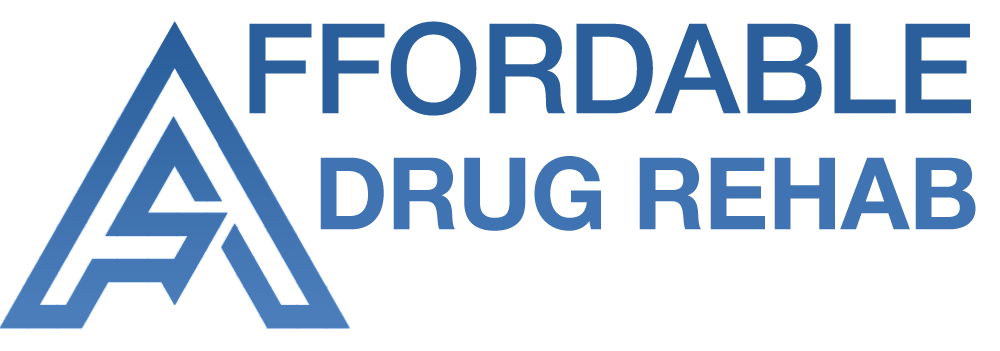The road to addiction recovery is one of the most arduous journeys an individual can undertake. It’s fraught with obstacles, from the initial admission of the problem to crafting a sustainable post-rehab life. Yet, one of the most formidable hurdles on this path is accessibility to affordable drug rehab treatment. For those grappling with substance abuse and their support networks, navigating the complexities of cost and quality in seeking treatment can feel like facing an impassable chasm.
In this comprehensive guide, we unravel strategies and insights for identifying affordable drug rehab treatment without compromising on your or your loved one’s path to a successful recovery. We’ll explore various ways to cut costs, alternative funding options, and red flags to watch out for, ensuring that financial constraints do not become barriers to the transformation that effective rehab can provide.
No one should have to choose between their well-being and their wallet. It’s time to shatter the stigma that only the affluent can afford the luxury of a safe recovery. You deserve a chance at a healthy, fulfilling life, regardless of your financial standing.
The Imminent Need for Affordable Drug Rehab Treatment
Addiction is a formidable adversary. It doesn’t discriminate based on race, gender, or socioeconomic status – it can affect anyone at any time. It’s often described as a cunning and insidious disease that takes hold of an individual’s life without them even realizing it. This makes recognizing and acknowledging the problem incredibly difficult, but it is also the first step towards recovery. However, even with this crucial step taken, the path to rehabilitation can feel unattainable. The cost of drug rehab treatment is a major barrier for many individuals and their families.
It’s a harsh reality that those who need help the most are often unable to access affordable treatment. This further perpetuates the cycle of addiction and makes it difficult for individuals to break free from its grasp. But this does not mean that all hope is lost. With the right strategies and knowledge, it’s possible to find affordable drug rehab treatment without compromising on quality care. It’s time to break down these barriers and ensure that everyone has access to the help they need for a successful recovery journey.
Knowing When to Seek Help
Denial is a common shield for the addict and an insidious form of enabling for their loved ones. Here are some signs that professional intervention may be necessary:
Escalating Use: A gradual increase in the frequency and quantity of drugs or alcohol being consumed indicates the loss of control over addictive urges.
Declining Health: Addiction often manifests in physical symptoms such as weight loss, poor coordination, and a disheveled appearance, suggesting significant deterioration in health.
Social Withdrawal: Addicts often isolate themselves from friends and family, who may have been replaced by a new social circle of fellow users.
Financial Problems: Consistent overspending or unexplained financial issues can point to an addiction-related spending problem.
Legal Issues: DUIs, possession charges, or other legal implications related to substance abuse signify a need for professional help.
- Getting Past the Stigma
The societal stigma around addiction is a significant barrier to seeking help. It’s critical to remember that addiction does not equate to moral failings; it is a complex disease that requires medical treatment. Admitting you need help takes immense courage, and accessing this help should not be further impeded by judgment or cost.
Costs and Considerations of Affordable Drug Rehab Treatment
Understanding the expense of drug rehab treatment is as crucial as recognizing the need for it. Cost is not solely a financial consideration; it also influences treatment decisions, time commitment, and post-rehab support structures.
- Variables that Affect Cost
No two rehab programs are the same, and the cost of treatment is influenced by several factors:
Type of Facility: Inpatient facilities offer a more intensive and costly form of treatment, typically needed for severe addictions. Outpatient programs are generally less expensive.
Program Duration: The longer the program, the higher the cost, but with higher success rates in maintaining sobriety.
Amenities and Services: Some facilities offer luxury services such as spa treatments, massage therapy, or private rooms, adding a significant premium to the treatment.
Staff Expertise: Higher staff-to-patient ratios and programs with more specialized therapists can elevate the cost.
- Funding Your Treatment
The financial burden of drug rehab can be significant, but it need not be insurmountable. Here are some avenues for funding:
Health Insurance: The Affordable Care Act mandates that insurance companies cover substance abuse treatment, albeit with some limitations. Verify your policy and understand your coverage.
Government Assistance: Programs like Medicaid and Medicare can assist with the costs of rehab.
Scholarships and Grants: Many rehab facilities provide financial assistance. Some non-profit organizations also offer grants specifically for rehab treatment.
Personal Savings and Loans: Tapping into savings, retirement accounts, or taking out loans can secure funding, but must be weighed against the long-term financial impact.
Finding an Affordable Drug Rehab Treatment
Recognizing the necessity of drug rehab is a vital first step, but the real challenge lies in selecting a program that aligns with both your needs and your budget. The abundance of choice in the market can be overwhelming, with the added pressure of identifying cost-effective options. Here’s how to methodically narrow down your search:
- Research and Recommendations
Gather as much information as possible to make an informed decision:
Online Reviews: While not the sole criteria, online reviews can provide insights into patients’ experiences and the effectiveness of the program.
Professional Consultations: Seek out addiction specialists or healthcare professionals for advice on treatment options.
Patient Testimonials: Hearing from those who have completed the program can be invaluable in understanding its effectiveness.
Accreditation and Licensing: Only consider facilities that are accredited and licensed. Adherence to quality standards often indicates a reputable establishment.
- Compare Costs and Services
Create a spreadsheet to compare potential rehab programs, noting the following:
Initial Cost: The base fee for the program.
Additional Costs: Any extra services not included in the base cost.
Comprehensive Fee: Some facilities offer all-inclusive pricing that may be more cost-effective than itemizing services.
Financial Assistance: Investigate each facility’s willingness and ability to provide financial aid.
- Visit the Facility
Whenever possible, conduct a site visit to the rehab center to address any concerns and gain a firsthand perspective:
Location: Consider the proximity of the facility to your support network or home, which may impact cost.
Lifestyle and Environment: The facility’s setting and atmosphere can directly affect the recovery experience. Ensure it feels conducive to your healing.
Talk to Staff: Interact with the therapists and support staff to gauge their fit with your treatment objectives.
Reducing the Cost of Drug Rehab
Ingenious cost-cutting measures can make the difference between a prohibitive and affordable drug rehab treatment. Here’s how you can lower the financial barrier:
Negotiate Prices
Don’t hesitate to negotiate the program’s cost. Many facilities are open to finding a middle ground that suits both parties.
Opt for Outpatient Programs
If your addiction does not require the level of care provided by an inpatient program, outpatient options can be considerably less expensive.
Look for Sliding Scale Payment Options
Some rehab centers offer sliding scale payments based on income, which can significantly reduce the financial burden for those with limited means.
Volunteer for Treatment
A few facilities offer treatment in exchange for work or volunteer hours within the rehab center, making it a viable option for those with minimal financial resources.
Seek Community Programs and Support Groups
Local community programs or support groups may offer cheaper alternatives or even free services. While not a replacement for formal rehab, they can be a cost-effective supplement.

After Rehab: Staying Clean on a Budget
The post-rehab phase is just as crucial as the treatment itself in maintaining sobriety. However, continuing care, whether time-intensive or otherwise, often adds to the financial strain. After completing a rehab program, individuals may need to continue with outpatient therapy sessions, attend support group meetings, and take medication as prescribed. These ongoing expenses can quickly add up and become overwhelming, particularly for those who may have limited financial resources due to their addiction.
The stress of trying to budget for these continuing care expenses can also be triggering and potentially lead to relapse. It is essential to prioritize ongoing care after rehab as it plays a vital role in maintaining long-term sobriety. However, it is equally important to find ways to manage the cost of these services and seek out affordable options. This may include exploring free or low-cost support groups, seeking financial aid from non-profit organizations, or reaching out to local mental health clinics for discounted therapy sessions. It is also crucial to prioritize self-care and healthy coping mechanisms instead of turning to substances as a means to cope with financial stress.
- Continuing Care
Aftercare is vital in preventing relapse and sustaining the momentum gained from rehabilitation. Options to consider include:
Outpatient Services: Structured treatment programs that require regular attendance at a clinic or treatment center.
Support Groups: Groups like Narcotics Anonymous (NA) and Alcoholics Anonymous (AA) provide free, peer-based support for life after rehab.
Therapy Sessions: Regular therapy sessions can be costly, but are covered by insurance in many cases.
- Employment and Housing
Employment can be more challenging for recovering addicts, particularly those with a history of criminal activity related to their addiction. Similarly, stable housing is a significant determinant of successful recovery.
Vocational Training: Seeking out vocational training programs that facilitate re-entry into the workforce.
Transitional Housing: Intermediate housing options can offer a secure middle ground between rehab and independent living.
Reintegration Planning: Developing a thorough reintegration plan with the help of a support network, including potential employers and housing agencies.
- Medication and Health Maintenance
For those undergoing medication-assisted treatment (MAT), the cost of prescriptions can add up quickly. Here are some ways to keep healthcare costs down:
Medication Assistance Programs: Many pharmaceutical companies offer assistance programs or reduced-price options for their prescription drugs.
Regular Check-Ups: Staying on top of health maintenance can reduce the risk of future medical crises, saving money in the long run.
- Support System
Establishing a robust support system is a cost-effective way to ensure sustainable recovery, offering emotional backing and practical assistance.
Family and Friends: Reconnecting with loved ones can provide a natural and cost-free support system.
Sponsorship: Developing a mentor-mentee relationship with a more experienced individual in recovery can offer substantial guidance.
Get Help Today
Addiction is a formidable foe, but with the right support, anyone can overcome it. Accessing affordable rehab treatment is not an unattainable dream; it’s a realistic goal that you can achieve with the right approach and mindset. By applying the strategies outlined in this guide, you can break through the financial barriers that might stand between you and a healthy, drug-free life. Remember to be persistent, resourceful, and unyielding in your determination to overcome addiction. The life you save might very well be your own.
For personalized assistance in finding an affordable drug rehab treatment program that fits your budget, contact Affordable Drug Rehab today. We provide compassionate guidance and support to those seeking a path to recovery without breaking the bank. You are not alone in this battle, and there are affordable solutions waiting to empower you in your quest for a brighter, substance-free future. Make the call that could change your life for the better—reach out to us now and take the first step towards affordable and effective drug rehab. Give us a call at (888) 850-3656 or visit our website at www.affordabledrugrehabs.com.


